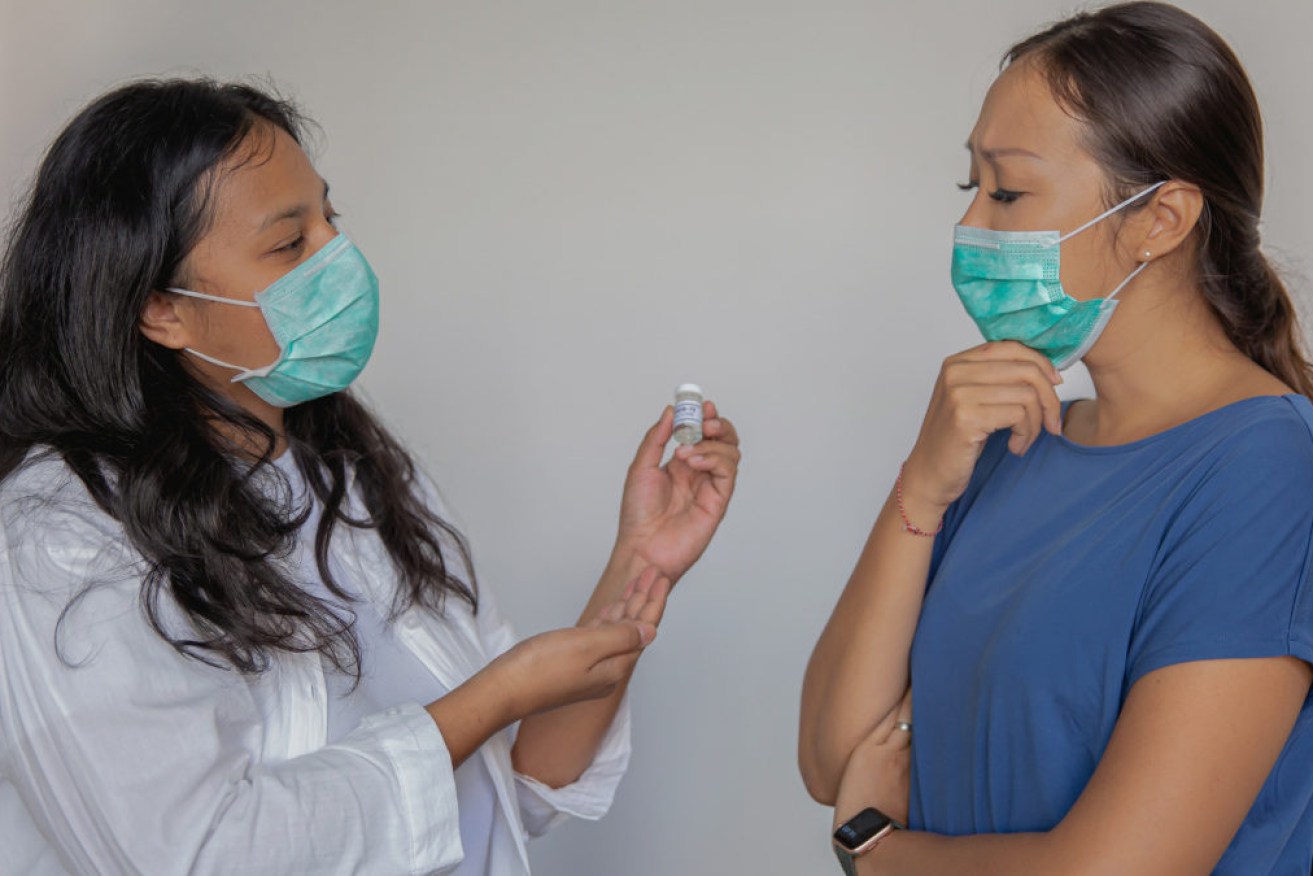Here’s how to talk to a vaccine-hesitant person about getting a COVID-19 jab, and what not to say


An open mind, and ears, are key to convincing a hesitant friend to get vaccinated against COVID. Photo: Getty
Uncle Pete says the COVID-19 vaccine came so fast, how could they have done the proper checks?
At the dog park, Dave tells you he is worried about clots.
Over coffee, Elly raises concerns about what it will do to her fertility.
As the COVID-19 vaccine rollout continues, you may encounter people who are vaccine hesitant or anti-vaccination, despite the overwhelming evidence that the vaccines are safe and effective.
Knowing how to talk to people with concerns about getting vaccinated is important.
TND asked Murdoch Children’s Research Institute public health researcher Jessica Kaufman, an expert in vaccine hesitancy, how to handles these difficult conversations.
Here are Dr Kaufman’s suggestions on what to say (and what not to say) to someone who tells you they are:
Waiting for Pfizer
They say: “I’m going to wait for Pfizer because I am afraid of clots from AstraZeneca.”
You say: “There’s been a lot of news about it, but let’s put it in perspective. It is more common in younger people, where it’s about 13 cases in one million doses. There have been eight deaths in total, which is sad, but we’re dealing with over 10 million doses. So it’s minute.”
If they are over 60, add: “There is no guarantee, especially in NSW and Victoria, that you’ll get Pfizer this year. All those supplies are going to younger people or kids. You’re not the next cab off the rank. You’re the last cab.”
Don’t say: “Don’t be stupid. You’re worried about a clot from a vaccine when you could die from COVID!”
Concerned the vaccines were made ‘too fast’
They say: “They made them so fast, I’m not sure they’re safe.”
You say: “The vaccines have gone through all the same trial phases and all of the same approval processes as other vaccines. They just did not have to wait to raise money in between and recruit people for each stage.”
Don’t say: “That’s just not right. They’re safe, don’t worry.”
Dr Kaufman’s notes: “You can also talk about how we’ve been working on mRNA vaccines for 30 years; we just needed coronavirus to show up, and it did. Tens of thousands of people were in the different phases of the trials.”
‘Going to wait and see’
They say: “I think I will wait and see.”
You say: “COVID is here. We are not in a bubble any more. We won’t be in a bubble in three or four months. It’s not no vaccine or nothing. It’s the vaccine or COVID.
“People talk about long-term effects of the vaccines, in terms of how they will work in 15 years. But we know 30 per cent of COVID patients get long COVID. They’ve got brain fog, reduced lung capacity.”
Don’t say: “While you’re waiting, people we know could be dying. You are selfish.”
‘Worried about fertility’
They say: “I’m really worried about fertility issues that a vaccine might cause.”
You say: “There is no evidence that the vaccines have any effects on fertility. We’ve administered more than five-and-a-half billion doses.
“We’re following the women who got pregnant in the trials, and they’ve had healthy babies. There have been plenty of studies that show no increased risk to babies or pregnant women.”
Don’t say: “There’s no evidence, chill out.”
An open mind, and ears, are key
No matter the reason for someone’s vaccine hesitancy, it’s important to go in with an open mind and really listen, Dr Kaufman said.
Try to work out why the person is concerned, and don’t just shoot them down.
“You want them to feel comfortable telling you what’s on their mind,” Dr Kaufman said.
“Once you’ve heard them out and you’ve found the biggest concern, you can acknowledge it is normal, so they feel they’re not being judged.”
Dr Kaufman said it’s important to back up what you’re saying with reliable sources from Australia, and try to find out what might motivate people to get the jab.
Perhaps it’s seeing a grandmother, being able to attend a football match, or not putting their children at risk.
“We want to make sure we’re putting it in perspective,” Dr Kaufman said.
“And reframe the discussion so people not in NSW and Victoria are reminded COVID is here.”








